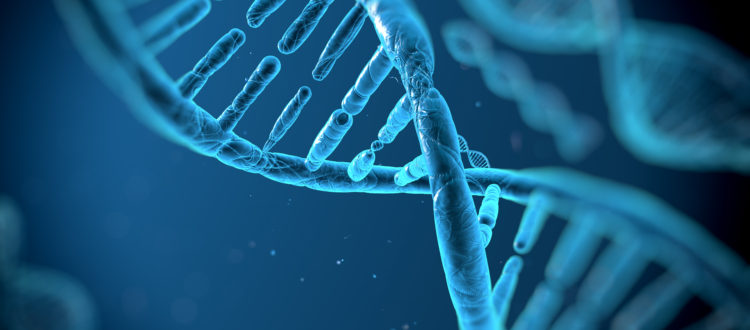Glutathione, GST Genotypes and Susceptibility to Autoimmune Disease
Autoimmune diseases are a group of disorders characterized by the body’s immune system mistakenly attacking healthy cells and tissues. The causes of autoimmune diseases are multifactorial, including exposure to chemicals, oxidative stress, chronic inflammation, and complex gene-environment interactions. Research has shown a potential link between specific genetic variants that code for the glutathione-S-transferase (GST) enzyme and the development of autoimmune diseases.
The GSTM1 gene, which is responsible for the production of the glutathione S-transferase M1 enzyme, can be completely spliced out of the genome, resulting in a deletion (null) genotype and the complete absence of enzyme activity. A higher frequency of GSTM1 null genotype has been found in individuals with certain autoimmune diseases, such as Hashimoto’s thyroiditis, multiple sclerosis, and those positive for anti-CCP antibodies, an antibody detected in rheumatoid arthritis.1,2 Some authors have found associations between GSTM1 null and systemic lupus erythematosus (SLE), and rheumatoid arthritis (RA), however, association was significant in East Asian populations only and remain to be proven explicitly.3,4 Interestingly, one study found the GSTM1 null genotype to be associated with type 1 diabetes (T1D) protection for males between the ages of 14 and 20.5
Glutathione (GSH) is the major endogenous antioxidant produced by the cell. GSH protects cells against oxidative stress and plays a role in the immune response. GST enzymes combine (conjugate) GSH to free-radicals or xenobiotics to neutralize them and protect cells from oxidative damage. Additionally, GSTM1 modulates the production of pro-inflammatory cytokines (TNF-α, IL-1β) and the activation of immune cells, such as T cells and macrophages. Considering that numerous studies report the major role of oxidative stress and abnormal immune response in the pathophysiology of autoimmune disease, it is feasible to see how GST contribute to the development of the disease.
While controversy remains between the impact of GSTM1 genotypes and autoimmunity, there are several proposed mechanisms of how GST enzymes contribute to the development of autoimmunity.
- Low GSH levels have been associated with autoimmunity, particularly T1D. In those with a copy of the GSTM1 gene, GST activity is higher and can theoretically deplete GSH levels. Depletion of GSH can lead to the disruption of cellular homeostasis and cell death. 5
- GSTM1 null genotypes, which have a complete absence of enzyme activity, leads to an inability of glutathione conjugation, which impairs the cell’s ability to neutralize harmful reactive oxygen species and eliminate of xenobiotics. This ultimately increases cellular damage and leads to chronic inflammation, a cornerstone of autoimmune disease.1
- Endogenous compounds such as the inflammatory mediators, leukotrienes and prostaglandins, are normally metabolized by GSTs. Thus, the lack of GSTM1 activity found in GSTM1 null genotypes may be a protective factor due to a decrease in the inflammatory response. 5
Understanding ones GST genotype helps to determine susceptibility to GSH depletion, environmental toxins, oxidative damage, and chronic inflammation, giving rise to targeted treatment strategies to address autoimmunity. N-acetylcysteine (NAC), which is an antioxidant that is commonly used to treat Hashimoto’s thyroiditis, provides cysteine, the amino acid precursor for glutathione production. While studies show that NAC reduces thyroid antibodies, there are no studies which show response based on GSTM1 genotype. From the studies above, it is reasonable to suggest that those who are susceptible to low GSH levels would benefit most from NAC supplementation, while those without the GST enzyme may benefit more from identifying and reducing environmental toxins and modulating inflammatory signalling pathways.
Overall, there are studies that show that the GSTM1 null variant is associated with an increased risk of developing certain autoimmune diseases. It is important to note that while this genetic variant may increase the risk of developing certain autoimmune disease, autoimmune diseases are highly heterogeneous, and genetics is not the only factor involved in the development of the disease.
References:
- Grujicic, D., Radović Jakovljević, M., Mihaljevic, O., Zivancevic Simonovic, S. & Milosevic-Djordjevic, O. Association of GSTT1 and GSTM1 gene polymorphisms with susceptibility to autoimmune diseases: A preliminary study. Kragujevac Journal of Science 153–161 (2018) doi:5937/KgJSci1840153G.
- Achour, Y, Ben Kilani, MS, Ben Hamad, M, et al. Measurement of absolute copy number variation of Glutathione S-Transferase M1 gene by digital droplet PCR and association analysis in Tunisian Rheumatoid Arthritis population. J Clin Lab Anal. 2018; 32:e22300.
- Song GG, Bae SC, Lee YH. The glutathione S-transferase M1 and P1 polymorphisms and rheumatoid arthritis: a meta-analysis. Mol Biol Rep. 2012 Dec;39(12):10739-45. doi: 10.1007/s11033-012-1965-5. Epub 2012 Oct 6. PMID: 23053970.
- Lu L, Lei D, Nong X, Guo M, Ma J, He L. The null polymorphism of the GSTM1/T1 gene is not associated with susceptibility to systemic lupus erythematosus: a meta-analysis. Mol Diagn Ther. 2015 Feb;19(1):65-9. PMID: 25628002.
- Bekris LM, Shephard C, Peterson M, Hoehna J, Van Yserloo B, Rutledge E, Farin F, Kavanagh TJ, Lernmark A. Glutathione-s-transferase M1 and T1 polymorphisms and associations with type 1 diabetes age-at-onset. Autoimmunity. 2005 Dec;38(8):567-75.

By Dr. Robyn Murphy, ND
Scientific Advisory Board Member

